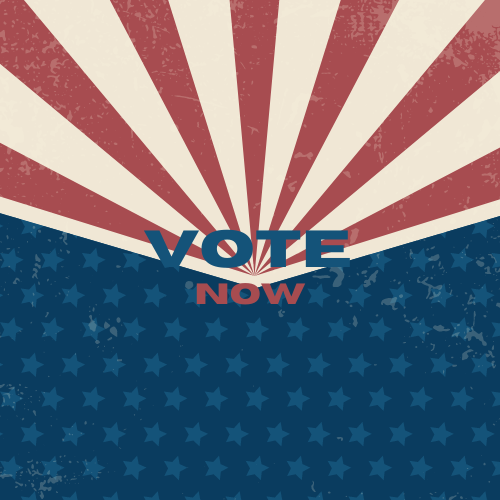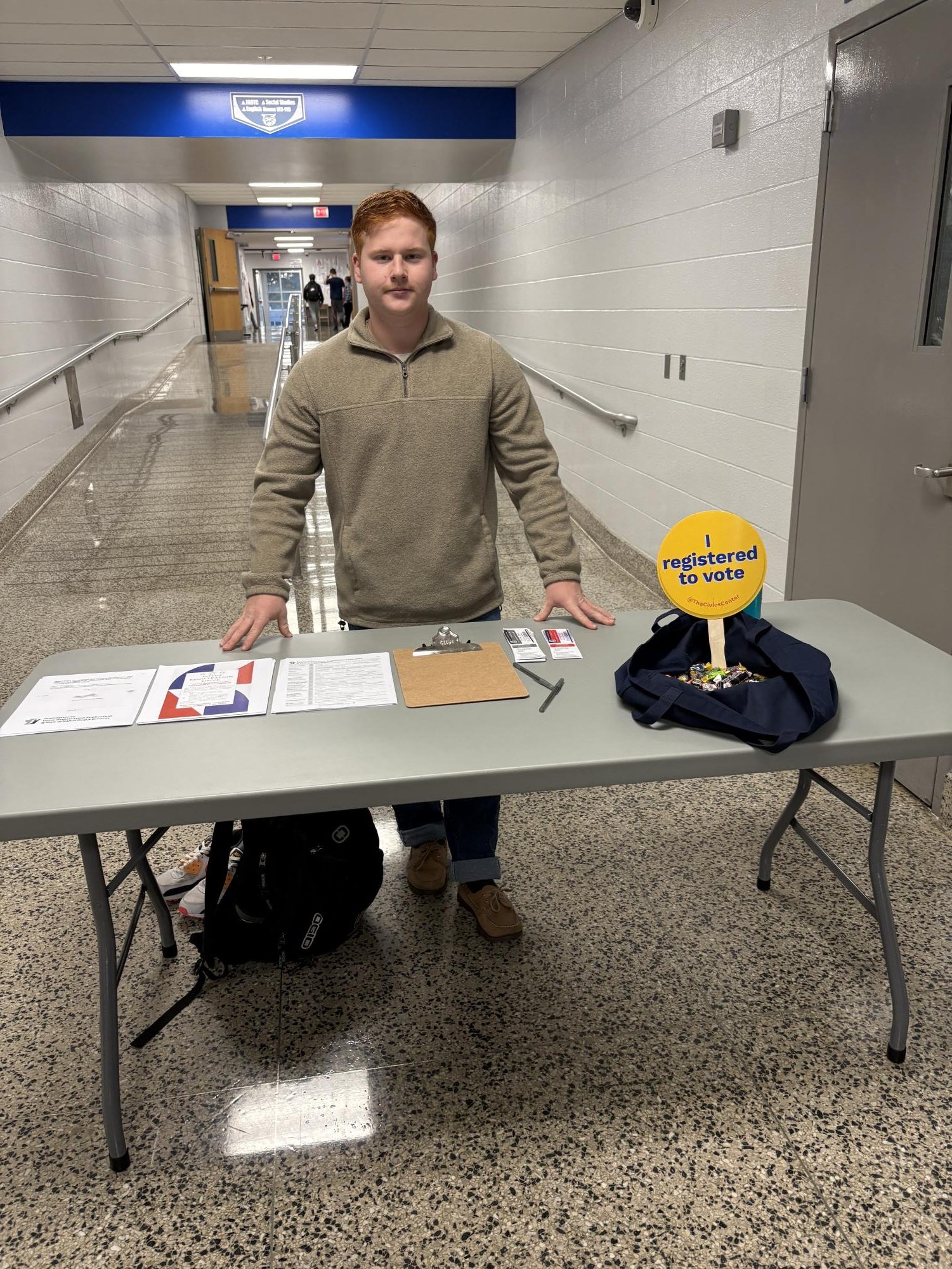I come from a family who stays very informed on politics and has conversations about candidates, platforms and campaign promises.
Coming from a family who discusses current events and elections, knowing what is happening during election season is very important to me. I’ve come to realize, however, not everyone is aware of what they need to know to be a informed voter.
As many DHS students will be eligible to cast their ballot for the first time this year, I want make sure those new Dallastown voters know the process so they don’t have to worry about it heading into Election Day.
July – September
While votes are cast in November, July is truly the beginning of the election season.
Hopeful candidates campaign through the summer months so that by early September official candidates are chosen for their respective parties.
One of the most known ways that candidates campaign is through ads. Whether they are seen on YouTube or during an ad break while watching TV, many have seen them.
Different candidates go about it in different ways too; many use negative ads telling voters why their opponents are bad options.
Although there are an overwhelming number of ads, sometimes they don’t sway the voters because they might not see them or just not be receptive to them. And usually by the end of the campaign season, Americans are tired of seeing and hearing about the candidates.
Senior Austin Shipley says, “I have not seen any ads for both Candidates. If I were to though, I do not believe they would sway my side (which I don’t currently have).”
September – October
September through October can be a very crucial time for the candidates as it is debate season.
The first debate normally happens in mid to late September, although the first debate from this year was June, 27 between former Democratic candidate and current President Joe Biden and Republican Donald Trump.
Over the years debates have lost their importance because a majority already know who they are voting for pre-debate. What the candidates say often doesn’t change who the people will vote for.
Although, there still is a number of people who can be swayed during the debate.
“I believe the debates are a great chance to see who the candidates are in a pressure situation,” states Mr. Murphy, Dallastown Government and Politics Teacher. “It can be a strong precursor for the next four years.”
Senior Bryce Keller says, “ If done successfully, I do believe that debates are a good way to understand a politician’s beliefs and character.”
There can also be times when debates are proven to be overall disappointing and anticlimactic, like the Joe Biden vs Donald Trump debate.
When Democratic voters saw how the 81-year-old carried himself and how he spoke, they knew they had to make a call to action.
Biden soon dropped out of the race and endorsed current Vice President Kamala Harris to be the Democratic candidate.
“I was utterly humiliated to be an American that night, as it was more representative of a reality show rather than critically talking about important topics dividing America,” states Keller.
Harris and Trump debated on Sept. 10 hosted by ABC News.
Tim Walz and JD Vance, the vice presidential candidates, then also debated on Oct. 1
November – January

November through January is the last leg of the season; at least for voters. Nov. 5 is general election day, as it is the first Tuesday after the first Monday of November.
What many people don’t know is that when you vote, you aren’t directly voting for your chosen candidate; you’re voting for electors.
Electors, also known as The Electoral College, are a group of people selected by their party to vote for both the President and Vice President.
There are in total 538 electoral votes; each state gets a certain number based on the number of people from said state in Congress. For example, Pennsylvania has 19 electoral votes because the state has 17 representatives in the House and two Senators.
270 of those electoral votes are needed for a candidate to win the election.
Although there is a rise in the number of states who want to change the process from this to whoever wins the popular vote, wins the election.
In the current process we have, the popular vote first takes place, then the electoral vote is taken. The popular vote is simply the vote that citizens take.
States like Colorado, Oregon, New Mexico, and Delaware are trying to change that.
The popular vote is the count of electors that vote for each candidate.
So the states that have less electoral votes will have less of a decision.
Until only the popular vote takes effect; the Electors will continue to take their votes in their capitol on a day between Dec. 14 to Dec. 20 When they are finished voting, Congress will tally up the votes to see who won the election.
Jan. 20 is the presidential inauguration where the President-elect and Vice President-elect will be sworn into office in front of the U.S. Capitol Building and officially be in office for the next four years.
Every Vote Counts
Many people are scared to start voting or simply don’t think their vote will matter, but it does.
“Voting is important because it is our most direct way of being involved in the political process,” says Murphy. “While most Americans are very content complaining about things they are not happy with, a way of actually having an impact, is to vote in elections.”

Dallastown held a voter’s registration drive throughout October to help encourage and enlighten new voters in the halls of Dallastown.
The combined effort of BSU, MJROTC, Major White, and senior Cassidy Gable was approved by Dr. Wilson and collaborated with an organization called The Civics Center which encourages high school students to engage civically.
Volunteers set up tables in the main lobby and the entrance from the student parking lot to assist with the registration process as needed and to give information to ensure that those who are eligible to vote (turn 18 by November 5) could register. They had forms and information for all who needed it.
It’s important that everyone who can, votes, but it’s even more important to vote informed.